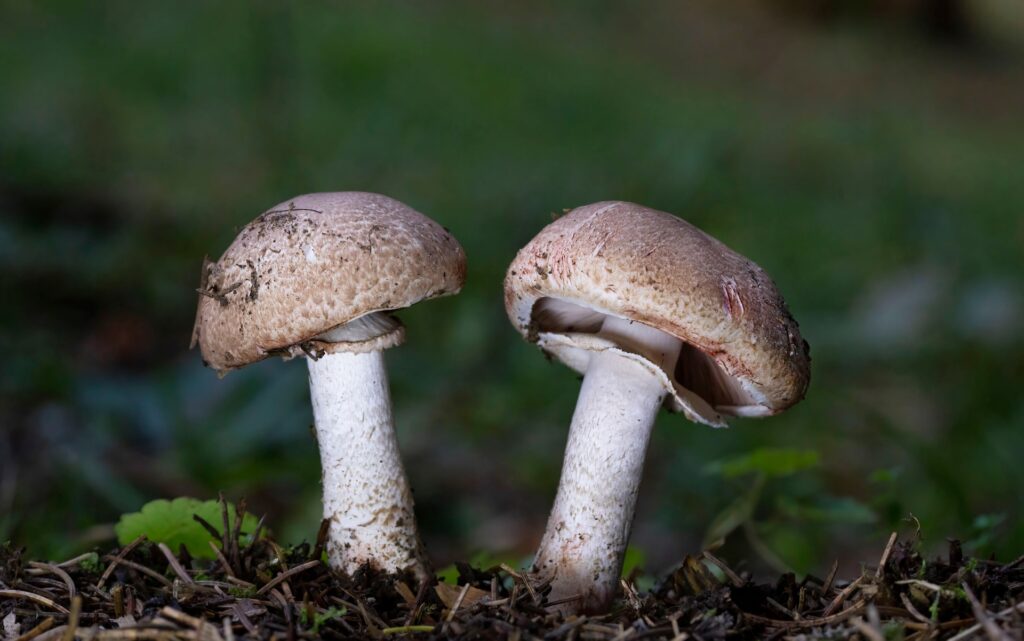Medicinal mushrooms have been valued in traditional wellness systems for centuries—but science is now giving them a closer look, especially when it comes to immune balance and cellular health. A recent lab study published in Arhiv za Higijenu Rada i Toksikologiju (Dec 2024) evaluated how certain mushrooms might influence different types of breast cells. The results? Promising—particularly for Agaricus blazei Murill (ABM).
What the Study Explored
Researchers examined how three mushroom extracts—ABM, Cordyceps sinensis, and a blend called Immune Assist—impacted:
- MCF-7 cells (a model for hormone-sensitive breast cancer),
- MDA-MB-231 cells (a model for triple-negative breast cancer), and
- HS-5 cells, which are healthy human stromal cells.
Using a common method called the MTT assay, they tested each mushroom at a range of concentrations (25 to 800 µg/mL) to see how it affected cell survival.
ABM Stands Out
Among the three mushrooms tested, ABM showed the most notable effect. It was more active than the others in reducing the growth of both cancer cell lines, especially MCF-7.
- For MCF-7 (hormone-positive) cells, ABM showed an IC50 value (the amount needed to reduce viability by 50%) of 96.7 µg/mL—the most effective of all the extracts.
- For MDA-MB-231 (triple-negative) cells, ABM still performed well with an IC50 of 368.4 µg/mL.
- The other mushrooms required higher concentrations to achieve similar effects, and their influence was more limited.
Healthy Cells Less Affected
One of the most encouraging findings? These mushroom extracts had far less effect on the healthy HS-5 cells, suggesting a level of selectivity. While more research is needed, this finding hints that these natural compounds may support the body’s ability to maintain healthy cell behavior, without disrupting normal tissue.
👉 In Part 2, we’ll explore what this might mean in the context of real-world treatments—especially when medicinal mushrooms like ABM are used alongside chemotherapy or radiation therapy.
Bibliography
- Topalović D, Živković L, Borozan S, Santibanez JF, Spremo-Potparević B. An in vitro evaluation of the cytotoxic potential of medicinal mushrooms against human breast cancer cell lines. Arh Hig Rada Toksikol. 2024 Dec 29;75(4):297-302. doi: 10.2478/aiht-2024-75-3915.
- Grinde B, et al. Agaricus blazei Murill in cancer patients undergoing chemotherapy. Int J Oncol. 2006;29(2):381–391.
- Sorimachi K, et al. Agaricus blazei Murill enhances doxorubicin-induced apoptosis in hepatocellular carcinoma cells by increasing intracellular doxorubicin accumulation. Int J Oncol. 2011;38(2):401–408.
• Hetland G, et al. Effect of the medicinal mushroom Agaricus blazei Murill on immunity, infection and cancer. Scand J Immunol. 2008;68(4):363–370. - Itoh H, et al. Antitumor effects of a polysaccharide extract from Agaricus blazei Murill on sarcoma 180 in mice. Jpn J Pharmacol. 1994;66(2):265–271.
- Gao Y, et al. Effects of Ganopoly (a Ganoderma lucidum polysaccharide extract) on the immune functions in advanced-stage cancer patients. Immunol Invest. 2003;32(3):201-15.

